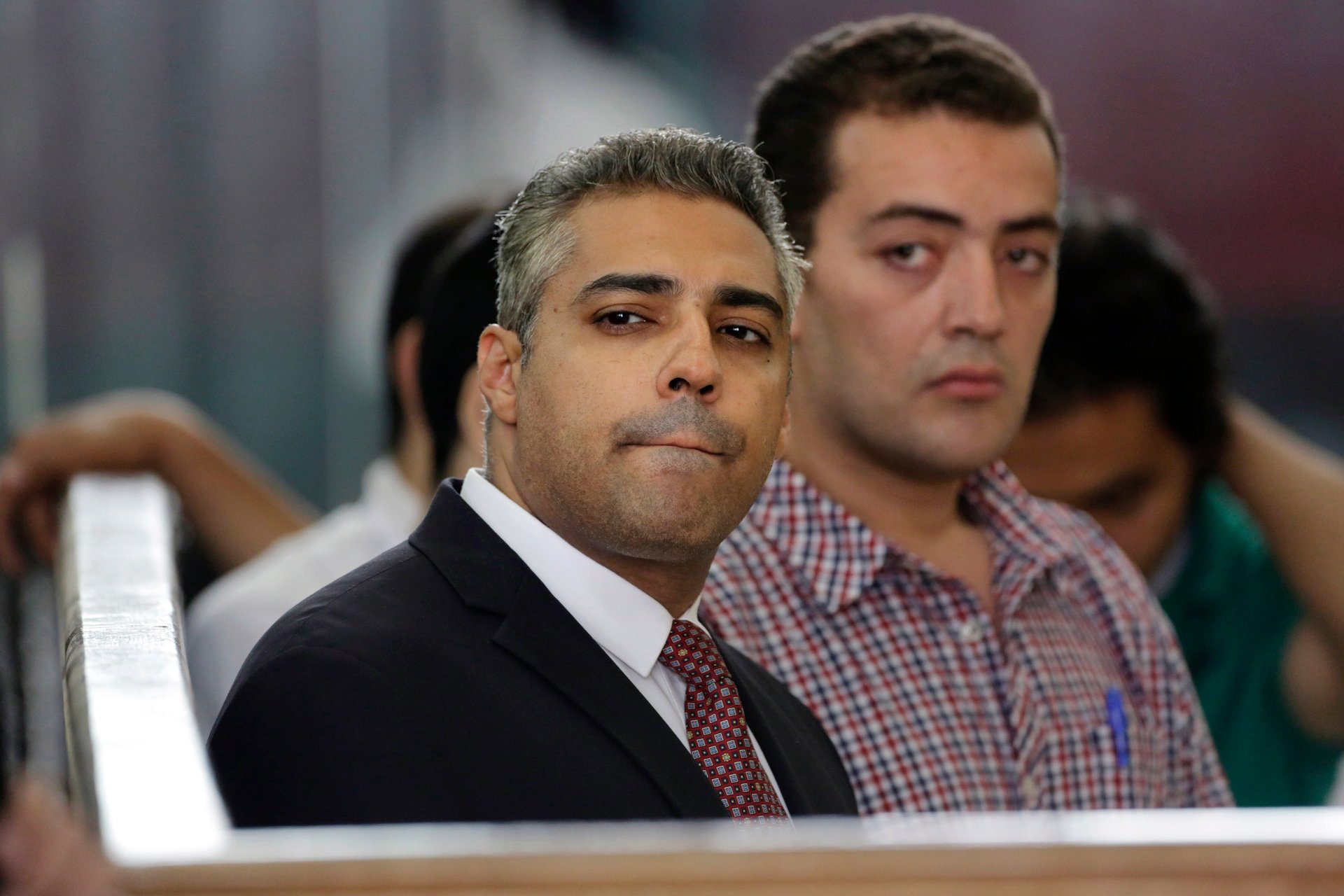The sobering reality of Egypt’s growing ‘bad press’ problem
Last month, Egypt’s official military spokesperson posted a poem on his Facebook page, which boasts over 5 million likes, explaining the country’s armed forces are facing two wars—one on the ground battling terrorists and another against some foreign journalists who (it claims) are waging an information war.


Last month, Egypt’s official military spokesperson posted a poem on his Facebook page, which boasts over 5 million likes, explaining the country’s armed forces are facing two wars—one on the ground battling terrorists and another against some foreign journalists who (it claims) are waging an information war.
The poem gives some insight into the dire state of press freedom a year into Abdel Fattah Sisi’s presidency. This weekend three Al Jazeera English journalists, Mohamed Fahmy, Baher Mohamed and Peter Greste were sentenced to three years in prison confirming this as one of the darkest times for journalists in Egypt. Mohamed received an extra six months in prison for possessing a bullet he picked up from reporting in Libya as a memento and which was found in his home when police arrested him.
Ahmed Abu Zeid, Egyptian ministry of foreign affairs spokesperson, singled out New York Times Cairo bureau chief David Kirkpatrick for a critical piece on the state of Egyptian prisons a couple of hours after the verdict was announced.
He continued with a series of tweets dismissing international criticisms of the flawed judicial process that marked the long running Al Jazeera case using the popular hashtag #AJTrial.
It wasn’t the first time a government minister of this current government had made a defensive comment on press freedoms in Egypt. In early August foreign minister Sameh Shoukry, in a press conference with U.S. secretary of state John Kerry, had boldly claimed no journalists in Egypt were in prison for their reporting but on suspicions of terrorist affiliations.
As of this month, 22 journalists are in jail in Egypt according to the Committee to Protect Journalists (CPJ).
Journalists, both local and foreign, have been facing increased difficulties in an unstable political landscape in Egypt.
Sherif Mansour, CPJ’s Middle East & North Africa coordinator, told me that this is the worst period for journalists since his organization started documenting violations since 1992. To illustrate the deterioration of press freedoms besides the Al Jazeera retrial, Mansour also referred to the case of Mahmoud Abou Zeid, a freelance photojournalist, who has been in prison for over 700 days without any charges.
Egyptian journalists have also lobbied against the government’s swift passing of an anti-terrorism law which would fine journalists up to USD $65,000 for publishing news contrary to the authorities’ version. Article 33 in the first draft of the law stipulated that journalists would be jailed but it was amended after intense lobbying by Egyptian press syndicate. President Abdel Fattah El Sisi signed it into law last week under much international criticism.
“Dealing with terrorism doesn’t mean going after peaceful actors such as journalists” said Mansour. “Replacing prison terms with heavy fines enough to bankrupt any journalist still constitutes a startling blow to the freedom of the press”.
Of the three Al-Jazeera journalists, Greste, an Australian, was deported earlier this year but sentenced in absentia. As Fahmy and Mohamed face the daunting task of spending three years after an arduous year already spent in appalling conditions and six months on tenterhooks awaiting a verdict, it’s fair to say times are tough for journalists in Egypt these days.
“I am hopeful but I haven’t slept much” Fahmy told me a few days before the verdict. I had messaged Mohamed Fahmy and Baher Mohamed the day before they were due in court yet again wishing them good luck and flippantly assuring them that we’d celebrate once this legal mess was over. I was shocked yesterday by the verdict because I thought bad press was always a regime’s worst nightmare to keeping the veneer of stability going. I was proved wrong once again.